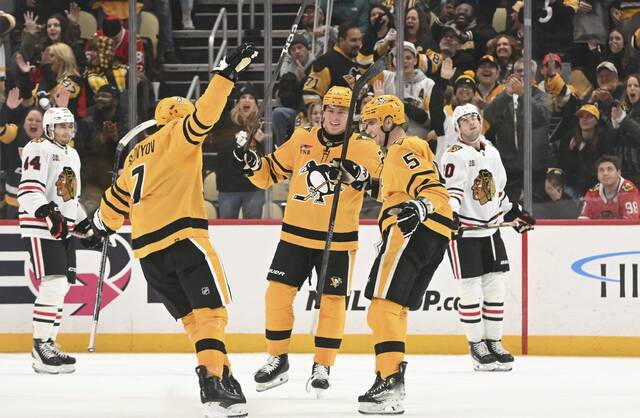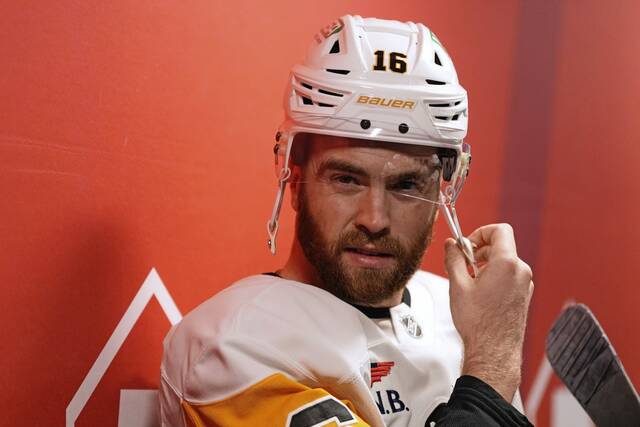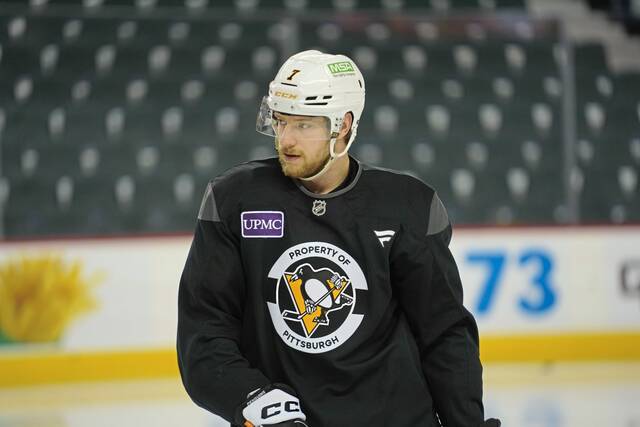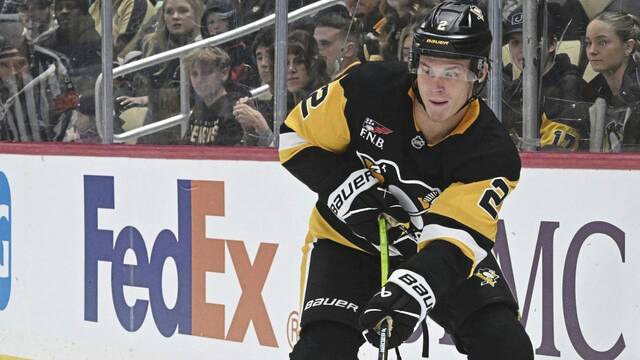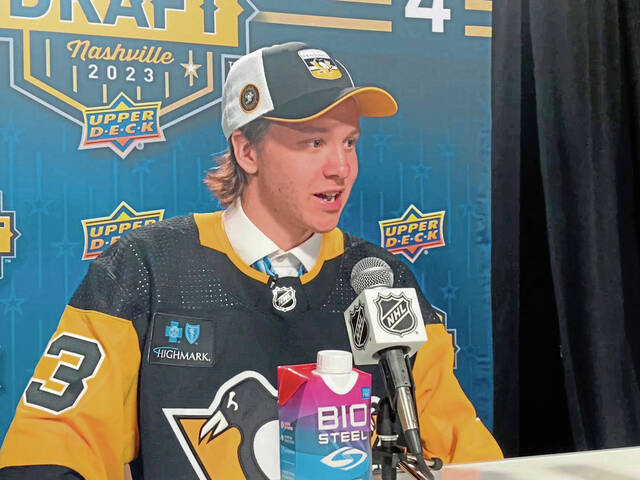It’s probably a little over the top to think of Chad Ruhwedel as a designated survivor.
After all, he’s not the Secretary of the Interior being asked to skip the State of the Union address.
He’s just an NHL defenseman. But he is one of the scant returnees to the Pittsburgh Penguins’ penalty kill this season.
To wit: The players who recorded the nine highest short-handed time-on-ice averages for the Penguins last season are gone.
Checking in at No. 10 is Ruhwedel at 1 minute, 49 seconds.
That level of turnover is understandable. The Penguins just weren’t good on the penalty kill in 2022-23, ranking 16th in the NHL with a conversion rate of 79.1%.
“Inconsistent,” Ruhwedel said of last season’s short-handed struggles. “This year, just more buy-in, more pride in it. Guys know when they go over the boards that it’s time to do a job. It’s something that we’re going to focus on.”
Management certainly focused on it this past offseason, bringing in established penalty killers such as forwards Noel Acciari, Lars Eller and Matt Nieto. Even top-six winger and 20-goal threat Reilly Smith has a history as a penalty killer.
But perhaps their largest addition — literally — in this area was 6-foot-5, 220-pound defenseman Ryan Graves.
For much of training camp and the preseason, Ruhwedel and Graves have been part of the first penalty-killing group sent over the boards.
During preseason-closing 7-4 road win against the Buffalo Sabres on Friday at the KeyBank, the Penguins were 2 for 3 on the penalty kill. Ruhwedel led the team with 3:28 of short-handed ice time, and Graves was second at 3:21.
“Solid, very solid,” Ruhwedel said of Graves. “Strong on the puck. He’s going to get a lot of pucks out. He blocked plenty of shots, including off the draws. Just solid.”
While Graves will hardly make anyone forget the likes of Ulf Samuelsson or Hal Gill in terms of combative, physical play, he does use his size effectively in that with an expansive reach, he can limit options with the puck for attacking opponents.
“I’m long and rangy with a big stick,” Graves said. “So you take up a lot of space. You want to create the perception that passing lanes aren’t there. When (opponents) have pucks in scoring areas, you want to make them feel like their time and space is limited.
“A big body that can take away lanes and things like that.”
The same can be said for Drew O’Connor, albeit on a smaller scale at 6-foot-3 and 200 pounds. After breaking through as full-time NHLer last season, O’Connor figures to claim a substantial role on the penalty kill this upcoming campaign.
“Things change day-by-day here,” O’Connor said. “If that’s where they put me, then I’ll be ready for it. I can (penalty kill) pretty well based on that I know it well and have done it a bit more recently. If they do put me there, I’ll be ready for it.”
Eller will be well-prepared for the role as well. After all, he has been a penalty killer for just about all 14 of his NHL seasons with the Montreal Canadiens, Washington Capitals and Colorado Avalanche. He acknowledges the Penguins penalty kill may be a work in progress in the early stages of the season given all the new components to it.
“Being in sync with your other three (skaters) out there, especially the forward to forward,” Eller said. “We just need reps, we need to talk, we need to maybe make a few mistakes and get better. Hopefully, we’ll get most of those mistakes made in the preseason and get the kinks out of the way. Some of the things are a little bit new for me, but it’s not something we’re going to make excuses about five games into the season. It’s pretty straightforward. We just need reps together as units and get that chemistry going, the anticipation off each other.”
With the exception of a few details, don’t anticipate many changes to the scheme the Penguins deploy in short-handed situations.
“A couple of tweaks here and there,” Ruhwedel said. “A few different points of emphasis but a lot of the same.”
But not many of the same faces.
“I don’t think it’s going to be too hard because the guys we are working in are good, established (penalty killers) like Graves,” Ruhwedel said. “He knows what he’s doing out there. Our system, I don’t think it will be too hard to grasp it.”



